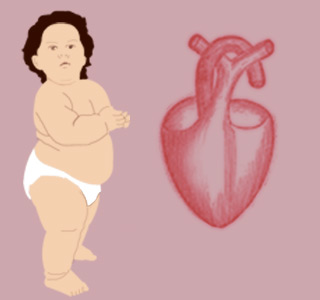
It was found that children below the age of 1 year seemed to more often fall prey to this miscalculation or medication error. In general, children belonging to different age groups were believed to be at a greater risk of facing this problem. This greater risk was explained by stating that health-care providers may often manually miscalculate weight-sensitive doses and also misconstrue the safe-age ranges of adult medications used off-label in children. Children with congenital heart diseases may have a greater risk of experiencing such errors because their heart medications may be commonly prescribed for them.
Study investigator, Marlene Miller, MD, MSc, Vice Chair for Quality and Patient Safety, Johns Hopkins Children’s Center, says, “We found that cardiac medication errors happen in children, and they can happen every step of the way, from prescribing to delivering the medication, but dosing and administration errors were ominously common.â€
The dosing errors occurring most of the time seemed to be related to computation mathematical errors; misinterpretation of the patient’s weight and giving higher, lower or missing drug doses.
In the course of the study, it was noted that around 96% of the time the medication errors which took place seemed to not have any drastic effect on the patients. Often these errors didn’t do grave damage or even reach the respective patients. Although the remaining 4% of the time, errors evidently caused some amount of damage, but no resulting death seemed to have taken place.
Apparently, by computerizing drug orders through in-built double and triple checking mechanisms, the occurrence of these types of errors may be reduced. This technique may lower the chances of miscalculations and misinterpretations taking place. Evidently this technique is already been put to use by Johns Hopkins Children’s Center.
Study investigator, Diana Alexander, M.D., conducted the study while at Hopkins and is now at St. Luke Regional Medical Center in Boise, Idaho, points out, “While it is essential to examine or modify system fail-safes, given the human factor in patient care, we also stress vigilance among hospital staff in all aspects of medication administration, from weight assessment to medication delivery.â€
Few of the grave errors committed were believed to involve diuretics, which by ridding the body of surplus water apparently treats lower blood pressure and heart failure. Apart from this, harmful errors also involve blood-pressure lowering drugs.
These observations have been published in Pediatrics.
